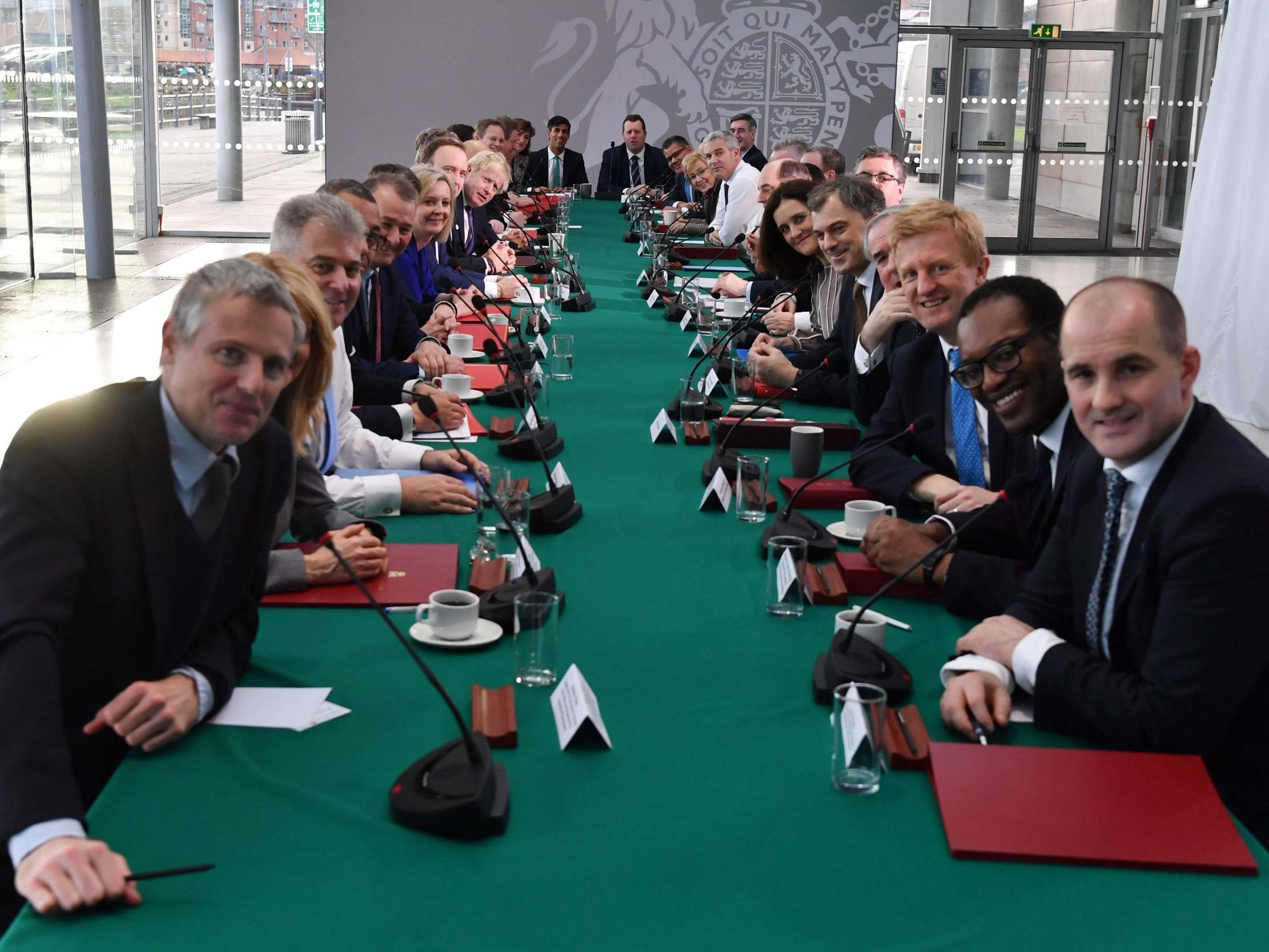There won’t be a huge cull of female ministers in Boris Johnson’s cabinet reshuffle – but he should still be careful
Editorial: Whispers about a massive exodus of women should be avoided. But the prime minister does need to demonstrate that he’s bringing the country forwards

The joke among Westminster journalists is that Boris Johnson’s imminent cabinet reshuffle gets smaller every time they write about it. With hindsight, it would have been better for the prime minister’s aides to downplay rather than raise expectations. Talk of wide-ranging changes in personnel and a radical shake-up of Whitehall departments has been replaced by speculation about a more modest affair.
What will matter most is not the number of sackings or new nameplates in Whitehall, which can be a costly distraction for both ministers and civil servants. Theresa May’s decision to create the now abolished Department for Exiting the EU in 2016 was a mistake. Brexit negotiations were always going to be run from No 10, and the move owed more to keeping Mr Johnson out of Brexit decisions while he was foreign secretary.
In the reshuffle expected on Thursday, Mr Johnson should appoint the best people for the jobs in hand, and aim to keep them in post for three or four years. With a Commons majority of 80, there should be no need for constant tinkering.
There has been far too much ministerial churn in governments of all hues. Since 1997, the average tenure of a cabinet minister in their post is less than two years – less than that of a football manager. We have had 18 housing ministers since then, seven justice secretaries since 2010 and six welfare secretaries in the past four years. It can take a minister up to a year to get to grips with a complex new brief, so this game of musical chairs is not good for the country. Of course, all prime ministers want to hold out the prospect of promotion to backbenchers and junior ministers. But Mr Johnson should aim for stability rather than copy predecessors who needlessly pressed the reshuffle button to try to relaunch their government in troubled times.
As he finalises his changes, Mr Johnson faces a “women problem”. He may struggle to keep the same number of female ministers in his top team – currently eight of the 32 who attend cabinet – because Andrea Leadsom, Theresa Villiers, Therese Coffey and Esther McVey are tipped for the sack. But despite chatter in Tory circles about a “pipeline problem”, there are highly competent women ready for promotion, including Lucy Frazer, Victoria Atkins, Helen Whately and Kemi Badenoch.
To mask the loss of some women from the cabinet, Mr Johnson might increase the overall number in his government’s ranks by promoting backbenchers to junior ministers. If possible, he should recall former ministers such as Penny Mordaunt and Tracey Crouch. In reshaping his team, the prime minister should not baulk at promoting people such as Ms Mordaunt and Ms Atkins because they backed his rival Jeremy Hunt in last year’s Tory leadership contest. It is time to let bygones be bygones, and bring his party together.
He would be wise to listen to Amber Rudd, a Hunt supporter who fell out with Mr Johnson and who is no longer in parliament. She wrote on Sunday: “There is a blokeyness around male politicians that is more comfortable when it is all men. I am not saying women are excluded – it’s just that they are not a natural part of the team. They are added as an afterthought.”
Headlines about a cull of women ministers could and should be avoided. It would send a damaging signal to female voters who, particularly among younger people, were less likely than men to vote Conservative in December’s election. The Tories may have produced our first two female prime ministers, but there are now more female Labour MPs than male, while only one in four Tory MPs is a woman. Although the number of women MPs is at a record high of 220, that still represents only 34 per cent of the total.
When Mr Johnson seeks re-election, it will be important for his party and government to look more like the country as a whole. He should not make that task more difficult by taking a backward step this week.
Join our commenting forum
Join thought-provoking conversations, follow other Independent readers and see their replies
Comments